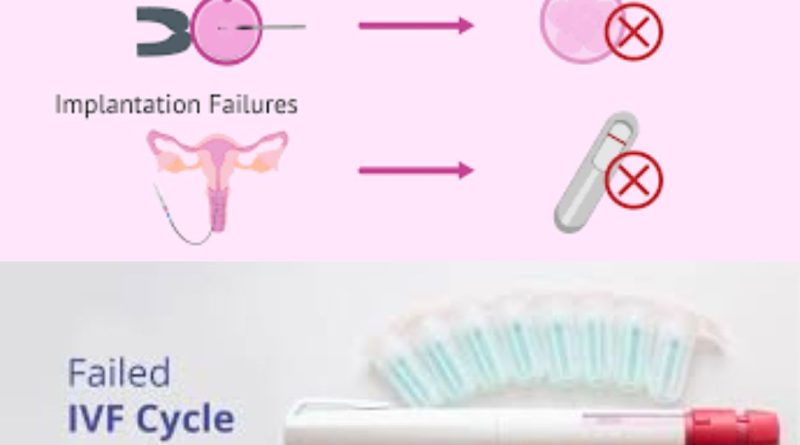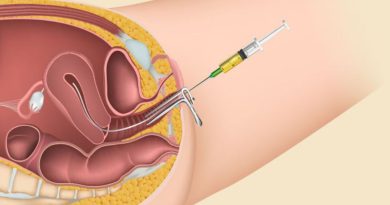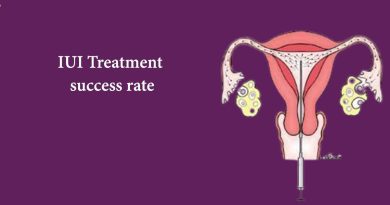Why Do IVF fails with good embryo
Do you want to know why your IVF treatments haven’t worked, even with good embryos? Healthy Tips4us this article talks about “why do IVF fails with good embryos”.
IVF is a way for people who want to have a baby but are having trouble getting pregnant. But sometimes, even when the embryos are good, IVF doesn’t work.
There are different reasons why IVF might not work. Let’s learn more about why it might not lead to a successful pregnancy.
Did you know? Despite the global success rate of IVF hovering around 40%, achieving successful conception through this method relies on a delicate balance of three key elements. These include the quality of the embryo, the health of the endometrium, and maintaining balanced hormone levels. |
Causes for IVF Failure
Generally, reason for IVF failure can be attributed to the following primary factors:
- Issues related to the quality of sperm
- Age and Psychological Well-being
- Uterine factors
- Genetic Concerns
- Health conditions and illnesses
Detailed Causes of Embryo Implantation Failures
Did you know that infertility concerns in IVF aren’t solely attributed to women? The male partner’s sperm health plays a critical role in IVF success. Here are key aspects to consider regarding healthy sperm:
- Volume: A healthy sperm count typically ranges around 15 million per milliliter of semen. In case of differences in the sperm count there can be an IVF failure.
- Motility: It’s important that at least 40% of sperm exhibit good motility to effectively fertilize the egg cell.
- Shape: Healthy sperm often possess a round head and a long tail.
-
Impact of Age and Psychological Well-being on IVF Success
The age of a woman significantly influences the success of IVF, serving as another potential factor contributing to its failure. Older women undergoing multiple failed IVF cycles often experience diminishing success rates with each subsequent attempt. Additionally, mental and emotional stress can play a role in IVF outcomes. Persistent trauma or stress resulting from past failed IVF attempts or other factors can adversely affect mental health, potentially leading to pregnancy failure.
-
Uterine factors
Uterine factors are the other reasons that contribute to the question “ why IVF fails?” Uterine causes can be broadly categorized into two types:
- Structural Issues
Structural problems within the uterus are common but can often be addressed prior to commencing the IVF process. Doctors typically recommend undergoing a hysteroscopy to detect any abnormalities within the uterus.
Even the presence of fluid-filled fallopian tubes can hinder the success of IVF. Fluid from affected fallopian tubes may obstruct embryo implantation in the uterus. Additionally, fibroids can adversely affect IVF success rates despite the presence of viable embryos. Fibroids can alter the uterine cavity’s structure, impacting embryo development upon implantation. Endometrial polyps also pose a risk to the success of IVF.
- Endometrial Issues
The success of embryo implantation largely hinges on the receptivity of the uterine lining, which is only receptive to the embryo for a brief period. In cases where the uterus lining is faulty, even a normal embryo may fail to implant.
The uterine lining must reach a certain thickness, typically at least 7mm, to facilitate successful embryo implantation. Chronic endometritis is another condition that can adversely affect IVF success rates, often requiring antibiotic treatment.
Other factors contributing to a non-receptive uterus include:
- Presence of fibroids or polyps within the uterus
- Persistent uterine infections
- Elevated levels of uterine natural killer (NK) cells
- Blood clotting disorders
-
Genetic Concerns
By the fifth day of embryo development, numerous blastocysts exhibit signs of robust growth. They appear to be in optimal physical condition, primed for implantation. However, there’s a crucial factor to consider and that is genetics. Despite their outward appearance of perfection, genetic testing reveals that nearly 50% of these seemingly flawless embryos harbor genetic abnormalities.
While these abnormalities may not always manifest visibly, they can impede successful implantation. They have the potential to render the embryos non-viable or, in certain instances, result in early miscarriage following implantation.
-
Health conditions and illnesses
Poorly managed chronic conditions can disrupt the IVF process. For example, thyroid disorders can disrupt ovulation patterns and interfere with embryo implantation. Conversely, uncontrolled diabetes can compromise egg quality and, in men, contribute to sperm DNA fragmentation. Autoimmune diseases present another hurdle, as they may cause the body to mistakenly target embryo tissues as foreign invaders, leading to potential complications.
Some other Reasons Of IVF failure Are?
Embryo Culture Lab
The environment in which embryos are cultured in the laboratory greatly influences their development. Maintaining precise temperature, pH levels, and composition of culture media is vital for ensuring optimal growth of embryos.
Expertise of the IVF Team
The skill and experience of the medical team, including doctors and embryologists, are pivotal for achieving successful outcomes in IVF. Proficient handling and manipulation of embryos during procedures such as embryo transfer profoundly affect the likelihood of successful implantation.
We like this article, share it with your family and loved ones. If you are looking for the place for IVF treatment in India, Click on “Best IVF Centre In India“.



